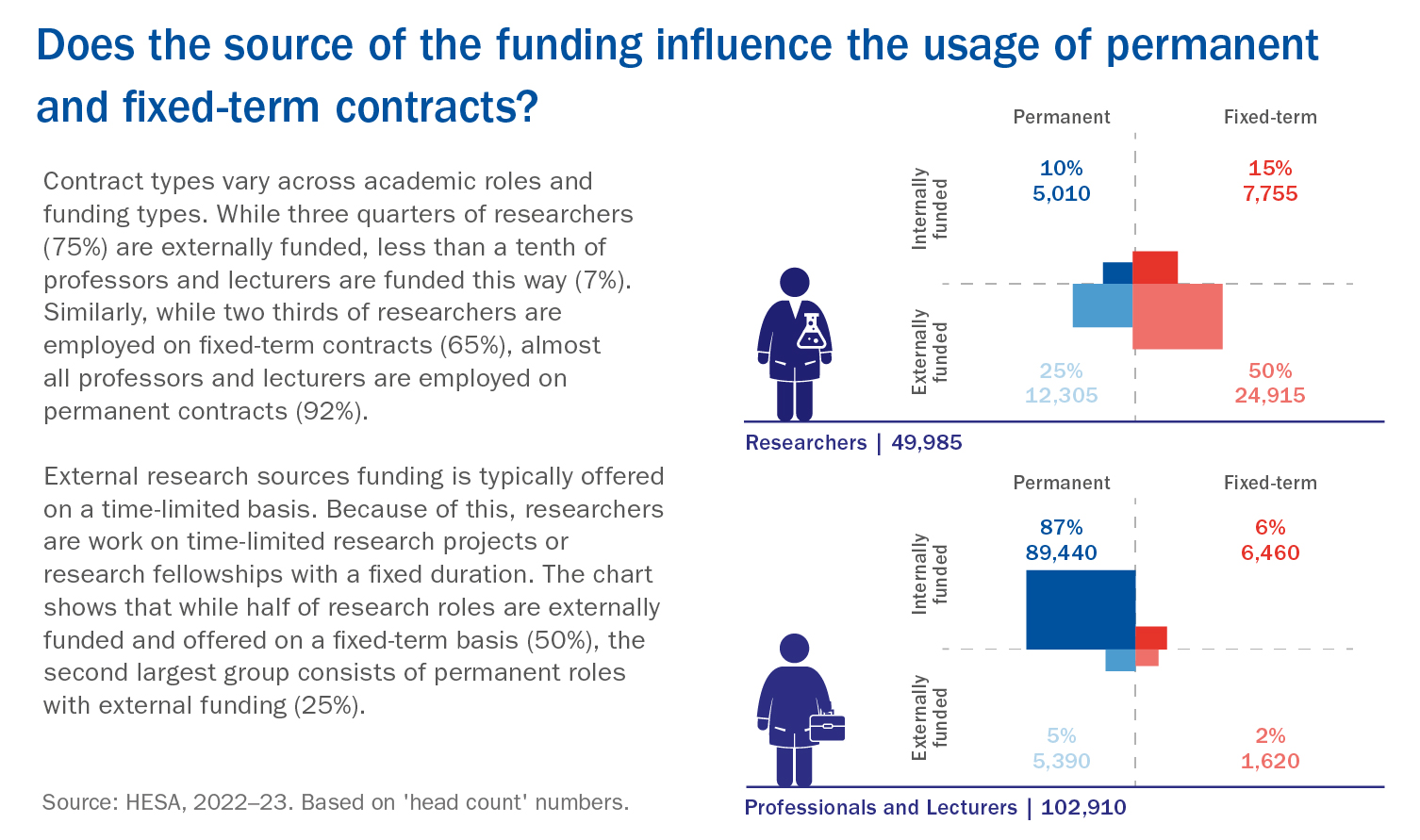Fair employment for all
Our Fair Employment For All (FEFA) programme is one of the key priorities of our Wellbeing, Inclusion and Culture Committee (WICC) and will deliver an improved employee experience, supporting the recruitment, retention and development of staff to achieve our Strategy 2030.
As we aim to make employment fairer for all our colleagues, we are progressing three key priorities:
- To significantly increase our use of permanent contracts of employment, recognising that fixed term contracts will be appropriate in a limited range of circumstances, such as cover for study leave and family leave.
- To reduce the University’s use of ad hoc working arrangements, including ensuring all of our regularly timetabled teaching is delivered by colleagues employed on standard contracts of employment.
- To improve the working arrangements for Postgraduate Research Students employed as Postgraduate Teaching Associates.
The University Executive Board (UEB) has endorsed the following Fair Employment For All principles:
- Permanent employment is the normal expectation;
- Fixed term contracts and non-contractual working arrangements are only used in a limited range of defined circumstances;
- The number of fixed-term contracts is reduced;
- Procedures are available for individuals working on fixed-term contracts and non-contractual working arrangements to seek a review of their contractual status in appropriate circumstances;
- There are standard paid time allowances for preparation, marking and associated activities for postgraduate students engaged in teaching;
- Regularly timetabled teaching is delivered by individuals engaged on standard contracts of employment.
Fixed term contracts are used only where this is appropriate. The table below shows the percentage of contracted staff (excluding PGR students engaged as Postgraduate Teaching Associates) employed on fixed term contracts at the beginning of each academic year.
| University of Exeter (all job families | Teaching (Education and Research and Education and Scholarship job families) | Research job Family | |
|---|---|---|---|
| October 2021 | 26.3 | 30.2 | 71.9 |
| October 2022 | 23.3 | 31.4 | 69.0 |
| October 2023 | 20.0 | 27.3 | 63.4 |
| October 2024 | 19.0 | 24.8 | 62.2 |
In addition to our core staff, other individuals contribute to the University's education activity through occasional teaching and marking. These individuals are paid on a claims basis because they are engaged for short, specific pieces of work. They include experts in professional fields outside of higher education who contribute to professional development programmes, such as the MBA and degree apprenticeships, by delivering masterclasses or supporting practical assessments. The short-term nature of these assignments mean that contracts are not appropriate.
The University and Colleges Employers Association (UCEA) has published information from the Higher Education Statistics Agency (HESA) on employment contracts in the higher education sector.
The graphic below shows that the area where we see the higher percentages of fixed term contracts are in research appointments/fellowships and that this broadly mirrors the extent of funding from external sources, which are in general limited term research grants. Many research posts and research fellowships are funded by external sources on a time-limited basis. Researchers are often therefore employed on a time-limited research project or awarded a fixed duration research fellowship. In the main academic population, only a small proportion of staff are employed on fixed-term contracts, again mirroring the extent of external funding sources.

Below is a list of improvements we have made already:
- In 2018, we improved the contracting arrangements for our postgraduate research students who undertake regular scheduled work, by giving them an annualised contract rather than engage them on an ad hoc basis. This has meant that they are now able to access the full range of benefits that are offered to colleagues on either a fixed-term or permanent contract.
- Since 2020 we have converted over 800 colleagues previously on fixed term contracts onto permanent contracts and we are continuously reviewing fixed -term contracts in order to move those eligible onto permanent contracts.
In addition to the above we have been working with our local unions, and the University has already taken the following steps to improve contractual arrangements for colleagues:
- Introduced business rules to ensure that a temporary contract is issued for longer assignments and that casual employment arrangements are only used for work which is ad hoc and short term.
- Agreed the circumstances in which fixed term contracts should be used. Each time a fixed term contract is renewed, it is assessed against these standards and considered whether it should be converted to a permanent appointment.
UEB have approved the following action plan for 2024/25:
- All new vacancies with a contract term of two or more years will be employed on a permanent contract (subject to a limited range of exceptions). Implementation date for this to be agreed.
- For current employees on fixed term contracts, a series of biannual pro-active reviews will take place to review the employment status. The first tranche, employees with a length of service greater than 3 years 3 months, followed by second tranche for employees with a length of services greater than 2 years 6 months and final tranche of those on 2+ years.
- Implement a process for an employee/worker to request a review of their contract status if they have been engaged in the same role on a fixed term or hourly paid/eClaims basis in successive years.
- Set targets to reduce the percentage/number of fixed term contracts over the next 3 years.
- HR support for managers to increase the awareness of FEFA and the actions they can take to deliver on our FEFA commitments.
- 6 monthly monitoring data to be shared with both the Wellbeing, Inclusion and Culture Committee (WICC) and trade unions.
- Regular cycle of communications with staff community on progress of the FEFA programme.
In addition to the above, UEB also approved the following further developments for 2024/25:
- Develop a costed proposal for a matching process.
- Develop a costed proposal for bridge funding.
- Review business rules for use of fixed term contracts.


